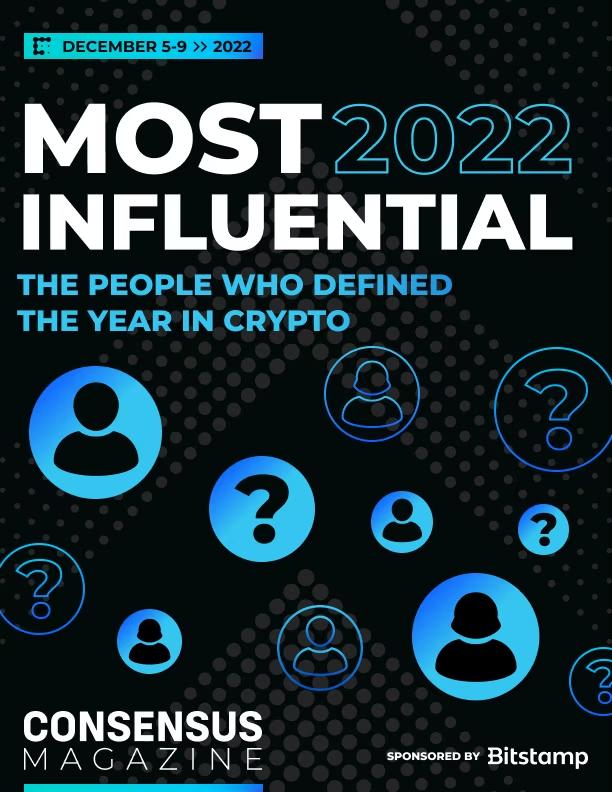One nagging question about Sam Bankman-Fried and his FTX Crime Family has always been: what was the endgame? Given the incredible extent of the theft taking place, how did Bankman-Fried and his inner circle of co-conspirators foresee escaping their giant con with their freedom and dignity intact?
New charges filed Thursday against the disgraced effective altruist support the idea that he hoped to curry enough favor in Washington, D.C. to somehow escape the consequences of his actions. This strategy doesn’t withstand scrutiny – but then again, neither do most of Sam Bankman-Fried’s apparent goals or strategies, now that the reality behind his media facade is being revealed.
This article is excerpted from The Node, CoinDesk's daily roundup of the most pivotal stories in blockchain and crypto news. You can subscribe to get the full .
This helps drive home a tricky but important point about many of the crypto wunderkinds who ascended to the heavens in 2021 and fell to Earth in 2022. Bankman-Fried represented himself, and was lauded in the media, as some kind of genius. Same goes for Terra con artist Do Kwon and Su “Bitcoin will only go up forever” Zhu, CEO of Three Arrows Capital.
In fact, though, these people were putting on an act – an impression. They leveraged credentials, relationships and theatrical self-representations to create what you might call “a dumb person’s idea of what a smart person looks like.” This helped attract huge amounts of money.
But it’s now clear Bankman-Fried and the rest weren't just unlucky. They were remarkably dumb.
Way down in the hole
Thursday’s superseding indictment from the U.S. Department of Justice adds very serious new charges, including investment fraud, banking fraud, wire fraud and election fraud, to Bankman-Fried’s already-long rap sheet. Sources told CNBC that Bankman-Fried could face an additional 40 years in prison based on the new charges, on top of the existing allegations.
The documents detail Bankman-Fried’s various false public statements about FTX’s risk management and custodial practices, which support both the investment and wire fraud allegations. Sam was certainly of the “go big or go home” school of fraud: He stated in front of no less than the U.S. Senate that "as a general principle FTX segregates customer assets from its own assets across our platforms," even as he was secretly funneling customer deposits off the platform for FTX’s own uses (including sending donations to one-third of Congress).
The new charges also claim Bankman-Fried misrepresented FTX’s operation and the purpose of fiat bank accounts to U.S. regulated banks, which is an extremely serious allegation more associated with Mexican cartels and global terrorists than tech startups.
The most significant new charges address, in the words of the Southern District of New York, Bankman-Fried’s “unlawful political influence campaign, which involved flooding the political system with tens of millions of dollars in illegal contributions to both Democrats and Republicans made in the names of others in order to obscure the true source of the money and evade federal election law.”
See also: Sam Bankman-Fried's Altruism Wasn't Very Effective | Opinion
It might not be obvious, but this is a big, big deal. U.S. lawmakers, prosecutors and judges are understandably not huge fans of attempts to illegally subvert U.S. democracy (after all, they’ve created plenty of convenient, legal methods for doing so). The charges describe in depth the use of so-called “straw donors” to funnel FTX money (really, FTX user funds) to political campaigns by fraudulently representing them as donations from individuals, including two unnamed FTX executives.
Almost as a footnote, the charges detail incredibly brazen accounting fraud that flowed from the campaign finance fraud. Messages now in evidence show an unidentified FTX executive, referred to as CC-1, proposed backdating the sale of roughly $80 million in cryptocurrency to conceal the use of a personal bank account as a funnel for these fraudulent donations. (Public campaign finance records reported by CNBC strongly suggest that CC-1 is Nishad Singh, former FTX director of engineering.)
Fear the Reaper
All of this implies two ways Bankman-Fried may have been thinking about his long-term game plan. He may have simply thought he could do nothing but win, and that all the money he was stealing would magically regenerate somehow through his deranged financial and influence-peddling machinations. This species of stupidity would have flowed from Bankman-Fried’s apparently incurable case of elite delusion.
A more grounded theory of mind might suggest Bankman-Fried thought he could simply buy off politicians by funneling enough illegal, stolen donations to them. This is stupid in a more basic and embarrassing way: However cynical you may be about the U.S. justice system, relying on political connections for legal protection is a fairly poor strategy. Enron CEO Kenneth Lay was personal buddies with President George W. Bush. Elizabeth Holmes had Henry Kissinger on her board. They were both convicted nonetheless.
I’m reminded of Bankman-Fried’s declaration that “I would never read a book.” One wonders if he’s ever even heard of Enron, which collapsed when he was about 10 years old. (For that matter, one occasionally wonders if he's ever heard of "accounting".)
The foolishness of whatever plan was bonging around Bankman-Fried’s blissfully book-free skull was obvious to at least some inside the operation. Both a recent FT piece and the new charging documents describe Alameda CEO Caroline Ellison as essentially relieved when it all came crashing down.
“I just had an increasing dread of this day that was weighing on me for a long time,” Ellison wrote in a message seen by Bankman-Fried on or before Nov. 6. “And now that it’s actually happening it just feels great to get it over with one way or another.”
See also: The Faulty Moral Universe of Sam Bankman-Fried | Opinion
In other words, whatever ignorant delusions Bankman-Fried was and seemingly still is under, those around him saw what was happening as a fraud in real time. Caroline Ellison seemingly never had much hope of escaping dire fallout.
Bankman-Fried’s obliviousness to the inevitable consequences of his actions also invites a review of evidence that stimulants were widely used and abused within FTX’s top ranks. That includes a seemingly direct confirmation, posted by Caroline Ellison on Twitter:
nothing like regular amphetamine use to make you appreciate how dumb a lot of normal, non-medicated human experience is
— Caroline (@carolinecapital) April 5, 2021
This matters because, contrary to Ellison’s self-assessment, research shows that regular amphetamine use degrades cognition and judgment. One study specifically found that amphetamine abusers, like heroin abusers, were “profoundly … impaired on a test of pattern-recognition memory.” Pattern recognition sounds like it might be a significant skill for, oh I don’t know, a trading firm.
You might feel smarter when you’re tweaking, just as you feel perfectly safe to drive after three beers. You might also feel smart because you graduated from MIT, or because your parents are decorated scholars.
But whatever its source, the belief that you’re a genius clearly doesn’t make it so.
 Join The Most Influential Conversation in Crypto and Web3!Secure Your Seat
Join The Most Influential Conversation in Crypto and Web3!Secure Your Seat








 Join The Most Influential Conversation in Crypto and Web3!Secure Your Seat
Join The Most Influential Conversation in Crypto and Web3!Secure Your Seat $23,145.38
$23,145.38 $1,599.16
$1,599.16 BNB$301.29
BNB$301.29 XRP$0.37675859
XRP$0.37675859 $12.76
$12.76DISCLOSURE
Please note that our privacy policyterms of usecookiesdo not sell my personal information has been updated.
The leader in news and information on cryptocurrency, digital assets and the future of money, CoinDesk is a media outlet that strives for the highest journalistic standards and abides by a strict set of editorial policies. CoinDesk is an independent operating subsidiary of Digital Currency Group, which invests in cryptocurrencies and blockchain startups. As part of their compensation, certain CoinDesk employees, including editorial employees, may receive exposure to DCG equity in the form of stock appreciation rights, which vest over a multi-year period. CoinDesk journalists are not allowed to purchase stock outright in DCG.



 BlocksInform
BlocksInform










